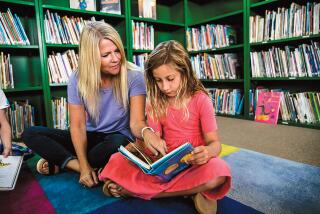READING TIPS AND NOTES / EXPERT ADVICE
Learning to read is a complex process. As parents, it is difficult to know which behaviors to encourage.
One of the most common questions parents have is whether a child can read a book too often. Once a child has memorized a book, is it OK for them to keep reading it? Are they still learning anything?
A book cannot be read too often. When children reread a book, or ask to hear it aloud, they are developing their reading. There are many ways that rereading develops literacy, and these apply to read-alouds or when the children read to themselves.
Typically, the first time children listen to a book, they are focused on the pictures. A new text, written or listened to, can be overwhelming. But on subsequent exposures, a child gradually begins to notice the print on the page. A child might ask about the big capital letter that begins each fairy tale, or about the print on the side of a truck in one of the pictures.
But children are not only learning about what print looks and sounds like, they are developing a sense of books. The structure of stories and the deeper meanings of the text are sinking in. For example, on repeated readings children are learning what to expect in a fairy tale versus a nonfiction text. It’s hard to measure this kind of learning, but it is critical in becoming a reader.
Besides the cognitive benefits of rereadings, a familiar book can offer emotional security. I have seen many a first-grader reach for an old favorite when they were upset. As child psychologist Bruno Bettelheim often asserted, in this unpredictable and fast-paced world we live in, a familiar book can offer a safe and comforting feeling. The print is the same; the characters say the same things. There are no surprises.
If children develop this ability to be soothed by a familiar book, they have a lifelong gift.
When children memorize texts and begin reading them without even looking at the page, it is hard to believe this is beneficial. But once again, it is.
Often this is first seen during read-alouds. The child will begin to join in with the reader on common phrases in the book. This will happen more and more, sometimes to the annoyance of the reader. But the child is learning about the permanence of print, the fact that the same words will be there on each reading.
A young reader advances further by memorizing a simple book. Often it seems like that book is read 50 times a day. But this process is critical to becoming a literate adult. Just as I discussed above, the child is practicing what it means to be a reader.
The child is developing the ability to read smoothly, learning the structures of text, and building confidence.
Part of creating lifelong readers is establishing that books can be our friends. Repeated readings allow children to blossom in a familiar setting. Every child deserves that chance.
BOOK EVENTS
* Dec. 2, Watts: A librarian will read children’s stories and sing songs with preschoolers. Los Angeles Public Library, Alma Reaves Woods-Watts branch, 10205 Compton Ave., 3:30 p.m., (323) 789-2850.
* Dec. 5, Santa Monica: Children’s Book Festival, P.S. No. 1 Elementary School, 1454 Euclid Street, 10 a.m.-2 p.m. Books for sale, storytelling, crafts. (310-394-1313)
* Dec. 5, Thousand Oaks: Wishbone will sign “Wishbone Mysteries No. 14.” Barnes & Noble, 160 S. Westlake Blvd., 11 a.m. (805)446-2820
More to Read
Sign up for our Book Club newsletter
Get the latest news, events and more from the Los Angeles Times Book Club, and help us get L.A. reading and talking.
You may occasionally receive promotional content from the Los Angeles Times.







